Over the years, ASTP members have established sound relationship with the industry through continuous interaction for placement of the trained candidates and proactive resolution of post-placement issues. Nevertheless, they feel, their collaboration with the industry can improve further for better alignment of training outcomes and social impact. Let’s look at what the featured ASTP training partners have to say on various aspects of industry partnership with views from the Management Team members of Gram Tarang, TMI e2E Academy, IndiaCan, Brainware Consultancy and SB Global Educational Resources.
Abhinav Madan, Managing Director Gram Tarang
 “To ensure that the students are placed in the right job role, Gram Tarang proactively studies the job roles and maps it with the skills of the students. When the job description matches with the skills, their personnel meet the relevant team members from the company. Our industry partners set up the skill lab and train the trainers to teach the required skills. They also organise guest lectures to share information about the job market. The industry members also contribute to the course curriculum which is based on NSQF parameters and it is implemented through action-based pedagogy.” Abhinav Madan
“To ensure that the students are placed in the right job role, Gram Tarang proactively studies the job roles and maps it with the skills of the students. When the job description matches with the skills, their personnel meet the relevant team members from the company. Our industry partners set up the skill lab and train the trainers to teach the required skills. They also organise guest lectures to share information about the job market. The industry members also contribute to the course curriculum which is based on NSQF parameters and it is implemented through action-based pedagogy.” Abhinav Madan
Gram Tarang prepares the students for post-placement scenario by counselling them about the job market and career growth. Later, the post-placement team takes care of issues at the job site. They also facilitate work-integrated distance education which enables the candidates to pursue higher education. To keep the trainers updated with the latest knowledge in their domains, Gram Tarang sends them to industries as per the requirement and get them assessed and certified.
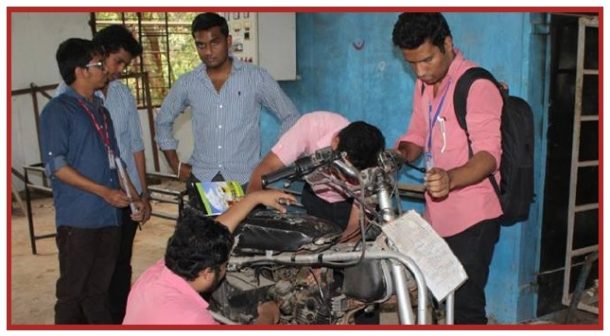 Suggestions for improving industry collaboration:
Suggestions for improving industry collaboration:
- Creating awareness of the skills in demand and new and emerging job roles.
- Developing labs, sharing knowledge, conducting training of trainers, industry visit of trainers, helping in creating curriculum as per job role and assessment of students.
T. Muralidharan, CEO TMI e2E Academy Pvt. Ltd.
 “We make sure the students get the right placement even before starting the course. We identify the market demand for the course and on the basis of that, we shortlist the employers. Based on the employer’s specifications, we prepare the list of candidates. We use defined set of assessments to gauge a candidate’s attitude, aptitude for the job before sending them for interviews. Our collaboration with industry begins from the very initial stages. They provide insights on the market requirement, the specific skill sets in line with the NOS and participate in the final participant selection.” T. Muralidharan
“We make sure the students get the right placement even before starting the course. We identify the market demand for the course and on the basis of that, we shortlist the employers. Based on the employer’s specifications, we prepare the list of candidates. We use defined set of assessments to gauge a candidate’s attitude, aptitude for the job before sending them for interviews. Our collaboration with industry begins from the very initial stages. They provide insights on the market requirement, the specific skill sets in line with the NOS and participate in the final participant selection.” T. Muralidharan
With a view to control attrition by preparing the students for post-placement scenario, TMI educates them on the prospects, challenges involved with discontinuation of services and show them the career growth prospects.To keep the trainers updated with the latest knowledge in their domains, TMI conducts Train the Trainer (ToT) program before the batch starts. They also share knowledge constantly through mails, flyers etc.
To improve industry collaboration for demand-driven skilling, TMI suggests
- Workshops on designing industry-relevant curriculum should be organized, along with setting standards and benchmarks.
- Need for partnering the industry to conduct a skill survey for various job roles.
Atanu Raha, Brainware Consultancy Pvt. Ltd.
“Brainware has set up a dedicated team for placement and we connect with the companies directly for the requirement generation and placement of candidates. We have built a huge database of clients. For new job roles, we try to tie up with the companies right after the batches start. Our placement process runs simultaneously with the technical training in the form of pre – placement grooming. As soon as the exam gets over the candidates can join the organization and start with the job.” Atanu Raha
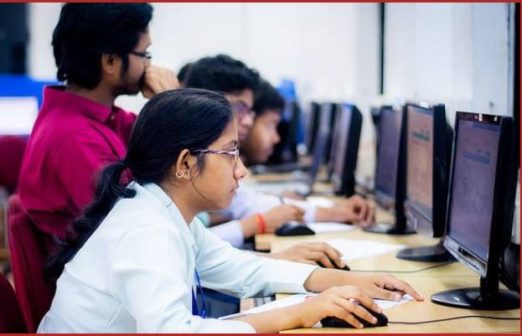
For post-placement engagement Brainware keeps in constant touch with the students through telephone, social media tools, often visit their workplaces and motivate them for more flexibility. They often communicate with their parents to learn about their reaction. When it comes to keeping the trainer updated with latest knowledge and skills, they have a dedicated group of job role specific Master Trainers who always keep contact with their faculty members for technical help. They also conduct special training sessions by their internal master trainers and industry experts to be at par with the market demand. Faculty evaluation tests are also conducted to appraise them and provide necessary guidance to overcome any shortfalls.
For improving the collaboration with the industry, Brainware suggests:
- The top management of the companies should be made aware of various skill development initiatives for an enthusiastic participation from the industry.
- The industry can combine related job roles for easing the job placements.
- Awareness about the certification provided by different sector skill councils is very much needed.
- Initiatives can also be taken from Government level to make the courses recognized by all relevant companies.
Sachin Dubey, IndiaCan Education Pvt. Ltd
 “To ensure relevant placements, we focus on providing the right training. We seek industry participation for training design and methodology to fit trainees best in the available job roles. At the same time, we identify right job roles by researching a huge number of job opportunities from the industry’s best organizations and the aspirants are served with the best-suited roles for their skillsets.” Sachin Dubey
“To ensure relevant placements, we focus on providing the right training. We seek industry participation for training design and methodology to fit trainees best in the available job roles. At the same time, we identify right job roles by researching a huge number of job opportunities from the industry’s best organizations and the aspirants are served with the best-suited roles for their skillsets.” Sachin Dubey
IndiaCan collaborates with the industry at all stages of training. During the pre-training state they get latest information about the jobs. The industry also approves and endorses the training curriculum, besides facilitating industry visits, guest lectures and post training support for recruitment and OJT.
- Skillset matching: The aspirants are sent for the options most apt for their skillsets.
- Aspiration setting: The job aspirants are prepared mentally with detailed information about the available job roles in a domain by addressing their queries.
- Aptitude building: Through industry visits and employer sessions the candidates are equipped with aptitude needed for a job.
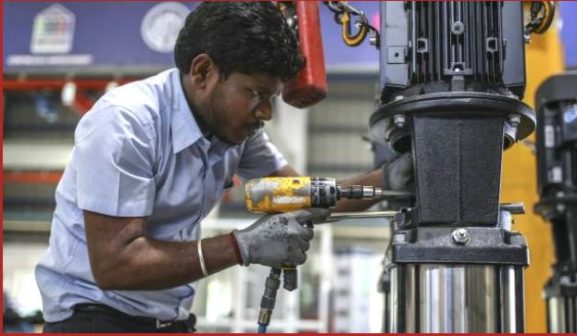
They prepare the trainers to be up to date with latest knowledge in their domains. The lead trainers conduct regular workshops on the field and share feedback on delivery, sessions called as ‘Manthan’. These sessions are held cluster-wise, to share best practices and its outcome. Field visits are also conducted for trainers and projects are assigned to learn from latest developments in the industry.
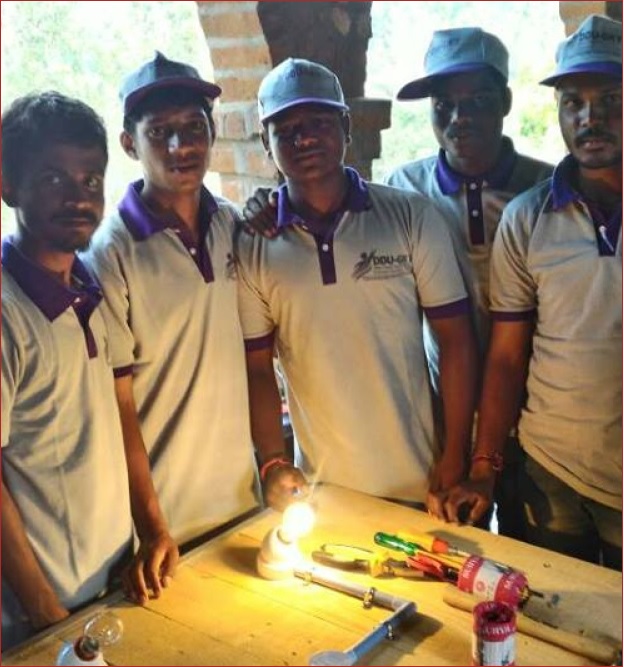
IndiaCan has the following suggestions to improving industry collaboration:
- Shift the focus beyond conventional industries and collaborate with companies for new age job roles in AI, Big Data Analytics, User experience design, Drone Operation, Renewable Energy Sector etc.
- Sector Skill Councils, as industry interface, must hold frequent interactions in larger groups wherein training partners, employers and manpower hiring partners are roped in to understand the futuristic hiring trends for demand based training.
K V Vinayarajan, CEO SB Global Educational Resources Pvt. Ltd.
 “We take many steps to get the right placements for the students. This includes, conducting psychometric test and interviews to judge their fitment for the job. The students are briefed about the nature of the job and what they can expect during the job and prepare them to face different situations. During the OJT, we provide them hands on experience. We also get desired industry support for guest lectures by the experts, site visits of the students, OJT and recruitment.” K V Vinayarajan
“We take many steps to get the right placements for the students. This includes, conducting psychometric test and interviews to judge their fitment for the job. The students are briefed about the nature of the job and what they can expect during the job and prepare them to face different situations. During the OJT, we provide them hands on experience. We also get desired industry support for guest lectures by the experts, site visits of the students, OJT and recruitment.” K V Vinayarajan
To prepare the students for post-placement scenario and control attrition, S B Global shares info about growth prospects and challenges in the industry. They also organize feedback sessions during the initial 2 months of them being placed.
For efficiency in training, they hire trainers with a minimum experience of 10 years and encourage client interactions to keep the trainers updated with new developments in the industry.
S B Global has the following suggestions to improve industry collaboration:
- Every industry should come up with a monthly or bi-monthly newsletter informing the companies about the changes happening in the industry.
- Industries should collaborate for conducting web-based conference and share latest information and growth prospects.
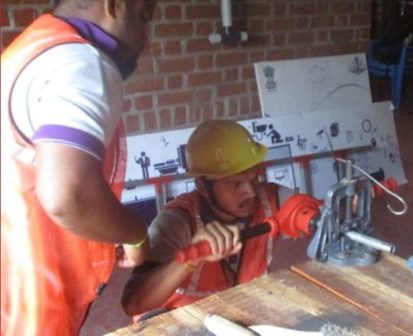
The views expressed by the ASTP members clearly establish the need for more in-depth and innovative engagements with the industry. While the featured training partners have taken many measures to control attrition proactively addressing post-placement issues, there is a need felt to get the industry requirements beforehand. This is definitely an indication to make sure that the training is more demand-driven as per the projections shared by the industry.













